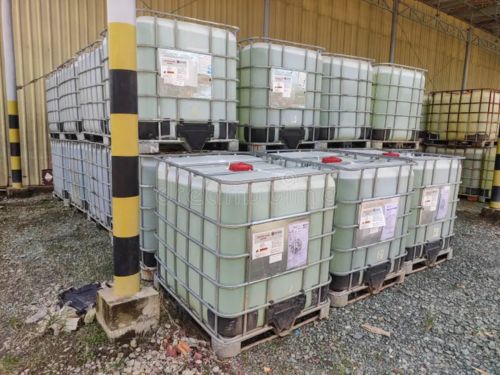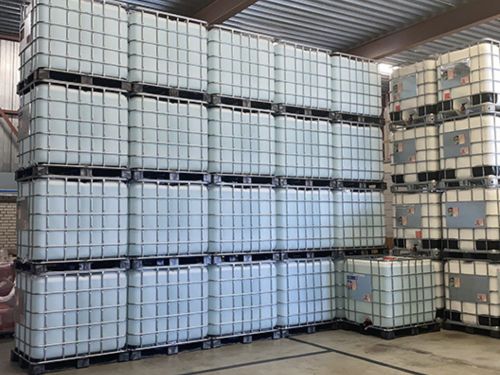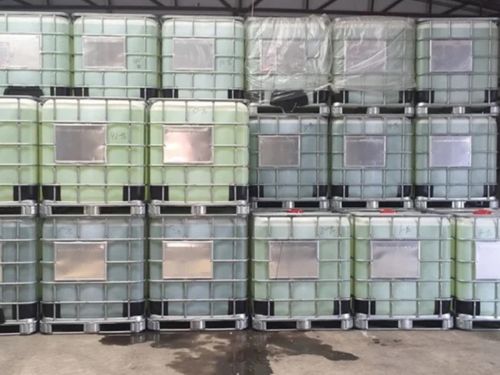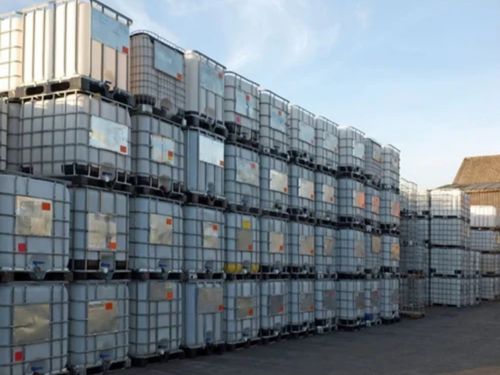Specification Summary
- Purity: 49–51% by weight (NaOH content)
- Form: Clear, colorless, odorless liquid
- CAS No.: 1310-73-2
- Molecular Formula: NaOH
- Molecular Weight: 39.997 g/mol
Liquid Caustic Soda Specification Table
| Property |
Specification / Value |
| Chemical Name |
Liquid Caustic Soda |
| Other Names |
Caustic Soda Lye, Liquid Lye |
| CAS Number |
1310-73-2 |
| Molecular Formula |
NaOH |
| Molecular Weight |
39.997 g/mol |
| Appearance |
Clear, colorless liquid |
| Purity (NaOH) |
49–51% (w/w) |
| Density (20°C) |
1.50–1.53 g/cm³ |
| pH (1M Solution) |
~14 |
| Boiling Point |
142–145°C |
| Freezing Point |
-12°C to +12°C |
| Viscosity (20°C) |
78–79 mPa·s |
| Solubility in Water |
Completely miscible |
| Sodium Carbonate (Na₂CO₃) |
≤ 0.10% |
| Sodium Chloride (NaCl) |
≤ 100 ppm |
| Iron (Fe) |
≤ 4 ppm |
Downloadable TDS
A comprehensive Technical Data Sheet (TDS) is available for download, providing detailed specifications, handling guidelines, and safety information.
Application Sectors and Industries of Liquid Caustic Soda
Water and Wastewater Treatment
Liquid Caustic Soda is used for pH adjustment, neutralization of acidic wastewater, and precipitation of heavy metals. It ensures water quality and regulatory compliance in municipal and industrial facilities.
Pulp and Paper Manufacturing
Essential in pulping and bleaching processes, Liquid Caustic Soda breaks down lignin and cellulose, improving pulp quality and paper whiteness. It is also used for de-inking recycled paper.
Textile Industry
Used in mercerization, scouring, and dyeing, Liquid Caustic Soda enhances fiber strength, dye uptake, and the finish of cotton and synthetic textiles.
Soap and Detergent Production
A key ingredient in saponification, it reacts with fats and oils to produce soap and is used in detergent formulations to boost cleaning efficiency.
Petroleum and Petrochemical Industry
Employed for neutralizing acidic components, refining petroleum products, and regenerating catalysts in oil processing plants.
Food Processing
Approved for food-grade applications, it is used for peeling fruits and vegetables, cocoa processing, and as a pH regulator in food and beverage production.
Alumina and Mining Industry
Integral to the Bayer process for extracting alumina from bauxite ore, Liquid Caustic Soda dissolves impurities and refines aluminum oxide.
Metal Surface Treatment
Used for cleaning, degreasing, and removing oxides and scales from metal surfaces before plating or coating.
Chemical Manufacturing
Acts as a strong base and reactant in the synthesis of various organic and inorganic chemicals, including sodium hypochlorite, dyes, and pharmaceuticals.
Pharmaceuticals
Used for pH adjustment, synthesis of active pharmaceutical ingredients, and as a cleaning agent in pharmaceutical production environments.
Packaging Types
- HDPE Drums (220 Liters):
Chemically resistant, suitable for medium-scale transport and storage of Liquid Caustic Soda.
- IBC Tanks (1,000 Liters):
Large, reusable containers for efficient bulk handling, transport, and storage in industrial environments.
- ISO Tank Containers (20,000–25,000 Liters):
Stainless steel tanks for safe, large-volume international shipping by road, rail, or sea.
- Tanker Trucks:
Specially lined or stainless steel tankers for bulk delivery directly to customer facilities.




